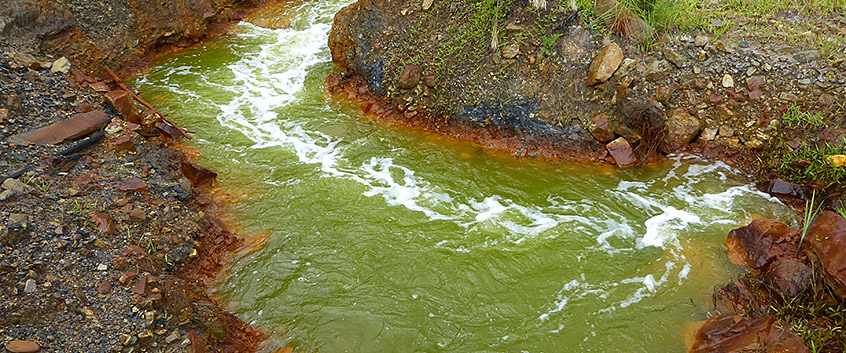
Department of Groundwater Remediation
How significant are groundwater resources for the general well-being of mankind? Which qualitative and quantitative standards for groundwater resources are achievable and maintainable in the long term? What are the interactions between anthropogenic groundwater contamination and surface water quality? What are the conflicts between different kinds of utilisation of the geological underground? How can groundwater resources be managed in a sustainable way?
These questions can only be answered if the formation, distribution, dynamics, anthropogenic impact and utilisation of groundwater are considered and analysed over various scales. The Earth´s usable freshwater resources are predominantly groundwater. Therefore approaches that allow prognostic statements for safeguarding this essential resource are of particular importance.
In the Department of Groundwater Remediation (GWS) scientists investigate various aspects of groundwater management in hydrologically different regions and on a wide range of spatial and temporal scales. In particular, anthropogenic impact on the availability and quality of freshwater resources is analysed using proper methodologies that allow the quantification, modelling and scenario-based assessment of water resources in terms of their interactions with other environmental compartments. The focus of our research is on areas that have been affected by the extraction of raw materials and by industrial activity as well as on regions, where due to scarcity or overexploitation, the resource groundwater is not managed in a sustainable manner.
Our competences include the complete spectrum of exploration, modelling and assessment of the hydraulic and geochemical dynamics of shallow and deep groundwaters. Particularly with regard to competing interests for the utilization of the subsurface, this allows the identification, communication and minimisation of potential conflicts and risks to sustainable management. Cooperation with authorities and stakeholder involvement play a major role especially where controversial issues which are the subject of public debate, such as existing or suspected groundwater contamination, are concerned.
